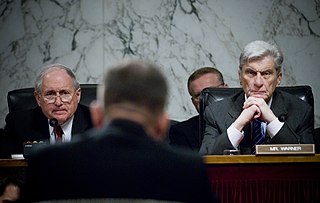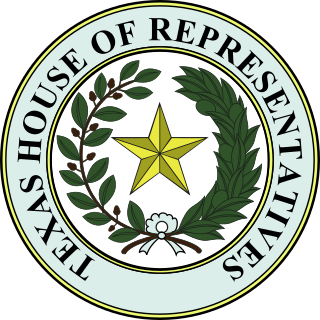External links
Current United States House Administration subcommittees | |
|---|---|
| | This United States Congress–related article is a stub. You can help Wikipedia by expanding it. |
The House Administration Subcommittee on Oversight was a subcommittee within the House Committee on House Administration. The subcommittee was created for the 112th Congress but was dissolved by the 113th Congress
From the subcommittee's website:
| Majority | Minority |
|---|---|
|
|
| Majority | Minority |
|---|---|
|
|
The United States Senate's Special Subcommittee to Investigate the Administration of the Internal Security Act and Other Internal Security Laws, 1951–77, known more commonly as the Senate Internal Security Subcommittee (SISS) and sometimes the McCarran Committee, was authorized by S. 366, approved December 21, 1950, to study and investigate (1) the administration, operation, and enforcement of the Internal Security Act of 1950 and other laws relating to espionage, sabotage, and the protection of the internal security of the United States and (2) the extent, nature, and effects of subversive activities in the United States "including, but not limited to, espionage, sabotage, and infiltration of persons who are or may be under the domination of the foreign government or organization controlling the world Communist movement or any movement seeking to overthrow the Government of the United States by force and violence". The resolution also authorized the subcommittee to subpoena witnesses and require the production of documents. Because of the nature of its investigations, the subcommittee is considered by some to be the Senate equivalent to the older House Un-American Activities Committee (HUAC).

The Congress of Deputies is the lower house of the Cortes Generales, Spain's legislative branch, the upper house being the Senate. The Congress meets in the Palace of the Parliament in Madrid.

A congressional committee is a legislative sub-organization in the United States Congress that handles a specific duty. Committee membership enables members to develop specialized knowledge of the matters under their jurisdiction. As "little legislatures", the committees monitor ongoing governmental operations, identify issues suitable for legislative review, gather and evaluate information, and recommend courses of action to their parent body. Woodrow Wilson once wrote, "it is not far from the truth to say that Congress in session is Congress on public exhibition, whilst Congress in its committee rooms is Congress at work." It is not expected that a member of Congress be an expert on all matters and subject areas that come before Congress. Congressional committees provide valuable informational services to Congress by investigating and reporting about specialized subjects.

The Committee on Armed Services is a committee of the United States Senate empowered with legislative oversight of the nation's military, including the Department of Defense, military research and development, nuclear energy, benefits for members of the military, the Selective Service System and other matters related to defense policy. The Armed Services Committee was created as a result of the Legislative Reorganization Act of 1946 following the U.S. victory in the Second World War. The bill merged the responsibilities of the Committee on Naval Affairs and the Committee on Military Affairs.

The Texas House of Representatives is the lower house of the bicameral Texas Legislature. It consists of 150 members who are elected from single-member districts for two-year terms. There are no term limits. The House meets at the State Capitol in Austin.
A congressional subcommittee in the United States Congress is a subdivision of a United States congressional committee that considers specified matters and reports back to the full committee.
The Joint Committee on the Library is a Joint Committee of the United States Congress devoted to the affairs and administration of the Library of Congress, which is the library of the federal legislature. There are five members of each house on the committee. It has no subcommittees.

The United States Senate Committee on Homeland Security and Governmental Affairs is the chief oversight committee of the United States Senate. It has jurisdiction over matters related to the Department of Homeland Security and other homeland security concerns, as well as the functioning of the government itself, including the National Archives, budget and accounting measures other than appropriations, the Census, the federal civil service, the affairs of the District of Columbia and the United States Postal Service. It was called the United States Senate Committee on Governmental Affairs before homeland security was added to its responsibilities in 2004. It serves as the Senate's chief investigative and oversight committee. Its chair is the only Senate committee chair who can issue subpoenas without a committee vote.

The U.S. House Committee on Homeland Security is a standing committee of the United States House of Representatives. Its responsibilities include U.S. security legislation and oversight of the Department of Homeland Security.

The Committee on Energy and Commerce is one of the oldest standing committees of the United States House of Representatives. Established in 1795, it has operated continuously—with various name changes and jurisdictional changes—for more than 200 years. The two other House standing committees with such continuous operation are the House Ways and Means Committee and the House Rules Committee. The committee has served as the principal guide for the House in matters relating to the promotion of commerce and to the public's health and marketplace interests, with the relatively recent addition of energy considerations among them. Due to its broad jurisdiction, it is considered one of the most powerful committees in the House.

The United States House Committee on House Administration deals with the general administration matters of the United States House of Representatives.

The Bureau of Legislative Affairs, also known as the "H Bureau", is the office of the United States Department of State that coordinates legislative activity for the Department of State and advises the Secretary, the Deputy, as well as the under secretaries and assistant secretaries on legislative strategy. The bureau facilitates communication between State Department officials and the Members of Congress and their staffs. The bureau works closely with authorizing, appropriations, and oversight committees of the House and Senate, as well as with individual members that have an interest in State Department or foreign policy issues. The bureau manages department testimony before House and Senate hearings, organizes member and staff briefings, and facilitates Congressional travel to overseas posts for members and staff throughout the year. The bureau reviews proposed legislation and coordinates Statements of Administration Policy on legislation affecting the conduct of U.S. foreign policy. The bureau staff advises individual bureaus of the department on legislative and outreach strategies and coordinates those strategies with the secretary's priorities.
Congressional oversight is oversight by the United States Congress over the executive branch, including the numerous U.S. federal agencies. Congressional oversight includes the review, monitoring, and supervision of federal agencies, programs, activities, and policy implementation. Congress exercises this power largely through its congressional committee system. Oversight also occurs in a wide variety of congressional activities and contexts. These include authorization, appropriations, investigative, and legislative hearings by standing committees; which is specialized investigations by select committees; and reviews and studies by congressional support agencies and staff.

The United States House Committee on Small Business is a standing committee of the United States House of Representatives. It was established in 1941 as the House Select Committee on Small Business.
The Science Subcommittee on Space and Aeronautics is one of five subcommittees of the United States House Committee on Science and Technology.
The Joint Committee on Atomic Energy (JCAE) was a United States congressional committee that was tasked with exclusive jurisdiction over "all bills, resolutions, and other matters" related to civilian and military aspects of nuclear power from 1946 through 1977. It was established by the United States Atomic Energy Act of 1946, and was the overseer of the United States Atomic Energy Commission. It had been preceded by the Senate Special Committee on Atomic Energy, chaired by Senator Brien McMahon. For its broad powers, it is described as one of the most powerful congressional committees in U.S. history. It was the only permanent joint committee in modern times to have legislative authority.
The National Security and Homeland Security Presidential Directive, signed by President of the United States George W. Bush on May 4, 2007, is a Presidential Directive establishing a comprehensive policy on the federal government structures and operations in the event of a "catastrophic emergency". Such an emergency is defined as "any incident, regardless of location, that results in extraordinary levels of mass casualties, damage, or disruption severely affecting the U.S. population, infrastructure, environment, economy, or government functions."
The U.S. House Energy Subcommittee on Communications and Technology is a subcommittee within the House Committee on Energy and Commerce. The subcommittee existed as the Subcommittee on Communications, Technology and the Internet during the 111th Congress and beyond.
The Subcommittee on Social Security is a subcommittee of the Committee on Ways and Means in the United States House of Representatives.
United States Intelligence Community Oversight duties are shared by both the executive and legislative branches of the government. Oversight, in this case, is the supervision of intelligence agencies, and making them accountable for their actions. Generally oversight bodies look at the following general issues: following policymaker needs, the quality of analysis, operations, and legality of actions.